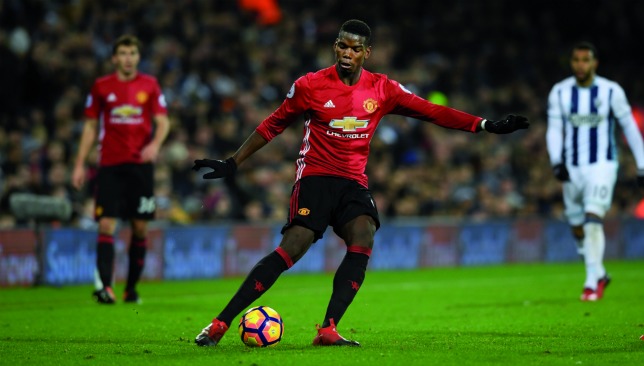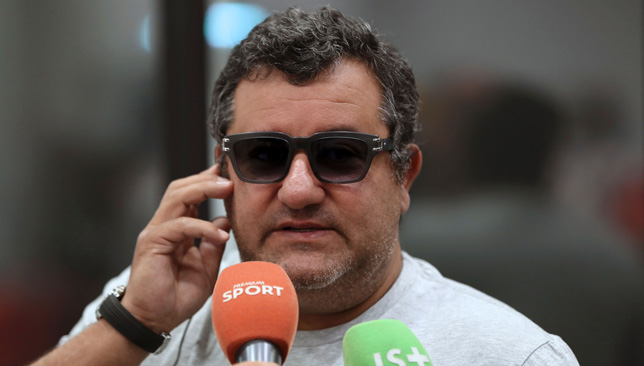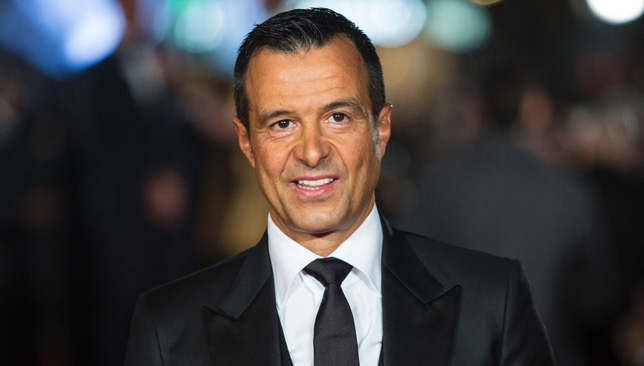
Agents have become like tsetse flies,” Sir Alex Ferguson wrote in his autobiography. “These days they are everywhere in football, and almost all of them do nothing but feather their own nests and mess up the relationships that players have with their clubs and managers.”
The former Manchester United manager’s perception of agents is shared by many in the industry and the recent Football Leaks report has compounded this negative perception, as it was revealed that high-profile intermediaries routinely design tax-evading schemes and outlandish compensation models on behalf of their clients.
One particular bone of contention for Ferguson was Mino Raiola, the agent who convinced Paul Pogba to leave the club in 2013 before bringing him back last summer, receiving a commission of €27 million (Dh104m) in the process.
Raiola is among an exclusive group of ‘super agents’, whose overbearing networks influence not just their clients’ careers but also entire clubs. His part in Pogba’s transfer from Juventus, the highest ever at €120m (Dh462m), cannot be understated and he also made Zlatan Ibrahimovic the most expensive footballer cumulatively in history at €157m (Dh605m), brokering moves across eight clubs.
With more money flowing into football, thanks chiefly to TV rights and wealthy owners, some agents are accused of favouring their own financial interests above those of their players.
But the resulting uproar will soon change the way their work is regulated, while technology will have an independent say on how transactions are carried out.
Footballers traditionally hire intermediaries to find clubs and negotiate the best deals for them. Although an agent is not mandatory, it has become the norm since the Bosman ruling in 1995. A total of 2,232 football transfers involved at least one intermediary in 2016, more than in any other year.
Agents were licensed by national federations and remunerated with a percentage on the transfer fee and on their player’s basic salary, usually ranging from 3-10 per cent. Since 2013, $1.1 billion (Dh4.04bn) in commission has been paid by clubs to intermediaries.
A transfer can be divided into three stages: first, the initial contact between club and player; then the negotiation of terms between selling club and buying club and between buying club and player; and finally the administrative registering of the transfer after it is agreed by all parties.
This process has evolved over time, due both to technological improvements and a desire to regulate each stage.
In the initial phase, agents used to pitch their players to clubs who then considered whether to initiate transfer discussions. This resulted in informational asymmetry as intermediaries pushed their own players and sometimes impeded the forces of the market by favouring one club over another through exclusivity clauses.
At the end of the process, when two clubs reached an agreement over a player, the transfer had to be registered with national federations and FIFA. This involved complicated procedures of faxes and letters that left space for inaccuracies over transfer figures, usually exploited by agents who sometimes negotiated specific payments from buying or selling club.
Ferguson notably accused Raiola of turning Pogba’s head towards Juventus, disregarding the player’s interest. Les Reed, who oversees the renowned Southampton academy that has produced the likes of Gareth Bale, Theo Walcott and Luke Shaw, agrees agents sometimes encourage player movements at too young an age.
“Intermediaries have taken advantage of a highly competitive market of player trading and player contracting,” Reed tells Sport360. “The biggest money in football is in the Premier League and top clubs are so competitive that intermediaries can easily manufacture a situation to manage the deals.”

Mino Raiola.
Elsewhere, the influence of agencies has had similarly unhealthy consequences. Serbia is among the top exporting countries in the world for footballers, but its domestic league has been weakened by the activity of intermediaries.
When Red Star Belgrade won the Champions League in 1991, rules in the former Yugoslavia prohibited players from moving abroad until the age of 28. In 2016, the FIFPro Global Employment report indicated that 82 per cent of current players in Serbia felt pressured for a transfer by their agent.
Super agents can leverage their player networks to gain a foothold within clubs, bringing in not just one but several clients at a time, sometimes even throwing in a coach too. A recent investigation by The Times revealed that some Premier League clubs engage in dual representation, hiring agents to work both for the player and the club for tax and VAT purposes.
Reed believes clubs must wrestle control back and wants to see better control of agent fees, which have escalated independently of salaries and transfers.
Another issue is with intermediaries asking for payments upfront, which sometimes leads to agitation to move a player again early in his contract. Agents can be in a position to delay a move during negotiations, and provoke one prematurely after a transfer is agreed.
“This can change only if enough clubs raise these issues with the relevant governing bodies,” Reed adds. “It must happen if the industry is not going to spiral into an ever increasing outflow of money generated by the game; leaving the game.”
A tipping point from FIFA’s viewpoint was third-party ownership (TPO) – the practice of football agencies becoming owners of players’ economic rights. It led to agencies earning both transfer-generated commissions from clubs and salary-generated commissions from subsequent player contracts. FIFA banned TPO and deregulated the status of agents in January 2015, meaning no licence was needed to be an intermediary.

Super agent Jorge Mendes.
Rather than defusing the clout of super agents, it arguably strengthened them by increasing their networks’ visibility and splitting up the rest. Players can change agents on a whim and are surrounded by competing intermediaries fighting for their representation.
“FIFA is trying to kill agents,” Michael Manuello, whose agency represents Olivier Giroud and Francis Coquelin of Arsenal, says. “Discussions about agents’ commissions are exaggerated in many cases, as our fees result from prices agreed between clubs through the forces of the market with no interference from intermediaries.”
Independently of ethics, technology has helped to address market gaps. In the initial stage of the transfer process, clubs now have objective information thanks to software like Wyscout and ProZone, which offers data on thousands of players across hundreds of leagues. Scouting software enables recruitment departments to receive early information on young players and filter acquisition candidates before initiating contact. Clubs thereafter increasingly have moved towards club-to-club contacts, with intermediaries having no control over which player a club is going to pursue.
Technology will also change the scope of agents’ work, as pointed out by Financial Times journalist Simon Kuper at a SportsTrade conference in Lisbon this year. “Agents will use data to identify good players and show it to clubs to prove they are worth signing,” he said.
For the last stage of the transfer process – the administrative recording of a transaction – FIFA implemented a Transfer Matching System (TMS) in 2010 to formally register each transfer; an online platform that requires various information be inputted in order to rubber-stamp deals. This has improved transparency and prevents agencies from negotiating unchecked fees.